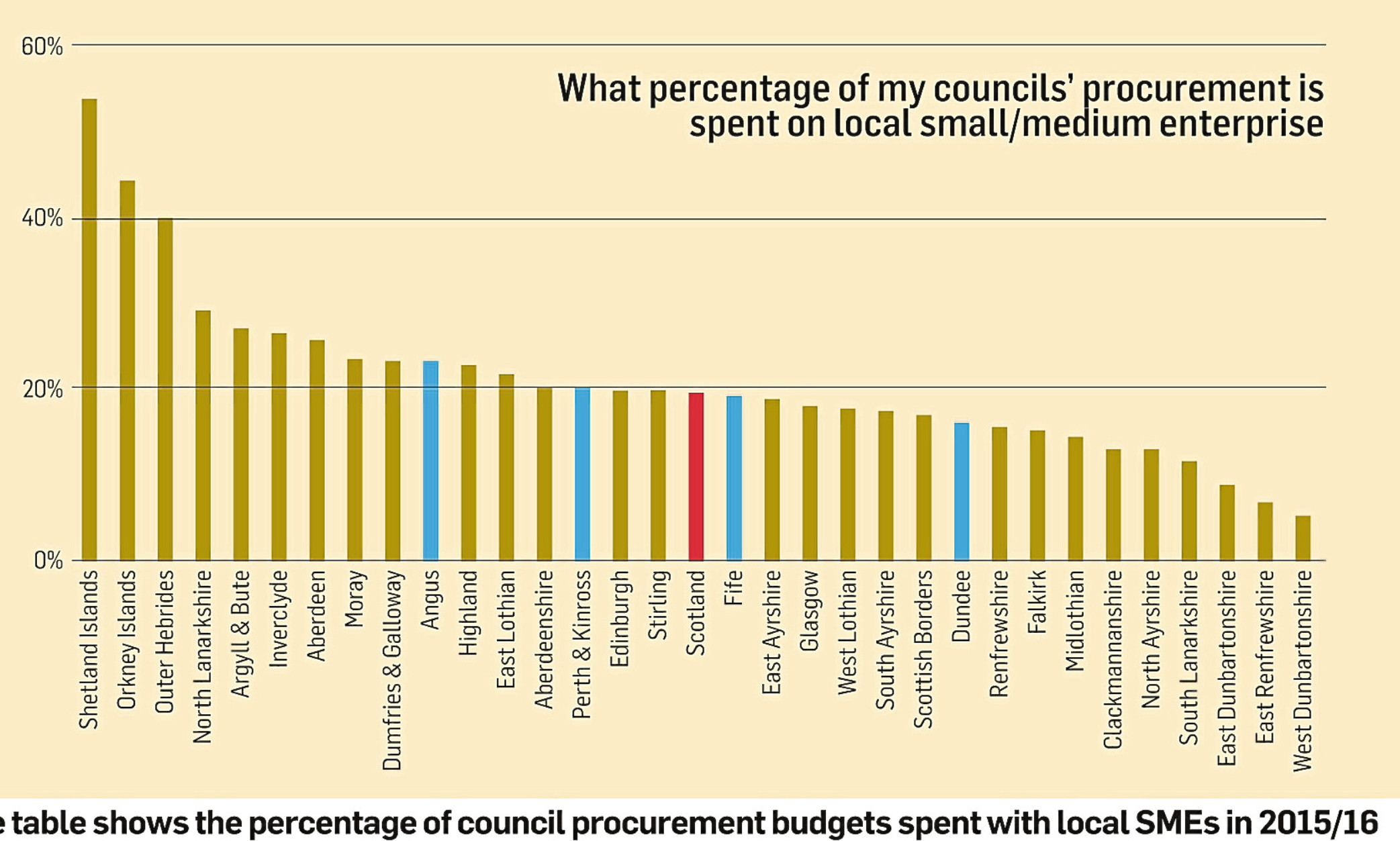Somewhat absentmindedly I shared a version of the above graphic on social media last week.
It is never going to win an award for eye-catching graphic design but boy did it make an impact.
Without supporting background context, on LinkedIn alone it has been viewed more than 4,500 times in six days and fired a debate about procurement practices within local councils.
The graphic was produced by the Federation of Small Businesses Scotland as they launched their wider manifesto for small businesses ahead of next month’s local council elections.
And, while they have an agenda to push, it is plain to see there is a gulf between local authorities and their community businesses.
Across the country, the FSB estimate that councils spend less than a fifth of their procurement budgets with local SMEs.
In terms of raw figures, total procurement spend across all 32 Scottish local authorities was £6.1 billion in 2015/16.
Of that, approximately £1.2bn was spent by councils in their local SME supply chain -a ratio of 19.7%.
Angus and Perth and Kinross were marginally above average in their spend, while Fife came in slightly below at 19.3%.
Locally, Dundee was the worst performer with the council spending 17% of their procurement budget with local firms – or around one in six pounds.
The best performers by far were the Shetland and Orkney Islands and Eilean Siar, the authority representing the Outer Hebrides, who spent more than double the national average with local SMEs.
In their manifesto paper, the FSB calls for a 2% uplift nationally in local procurement spending – a move it says would channel a further £600 million into smaller concerns in communities across Scotland.
Procurement is hugely complex and there are myriad reasons – not least the drive for best value – that makes buying from big operators the easier and more attractive option for councils.
But that is a double edged sword.
Buy nationally and the likelihood is the cash that has been spent will be lost to that local economy for good.
It is a net loss rather than a saving.
Buy locally and there is a much greater chance of the cash being recycled in shops, pubs, hotels and in procuring secondary services within the regional economy. That is a net gain.
The logic may be with local procurement but, ironically, the will to spend more from hard-pressed council budgets has to come from the centre.
Without a clear mandate from Holyrood to improve local spending rates then nothing will change.
On social media, one commentor said a holistic view rather than a transactional approach was needed for the best possible outcome from the procurement process. I agree.
